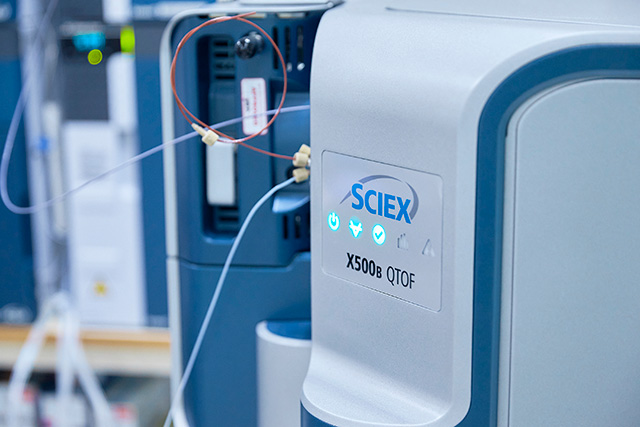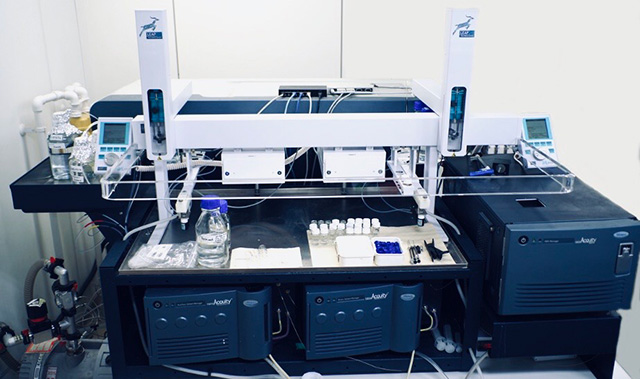Proteins that constitute viruses (VP) are critical quality attributes (CQA) as they contribute to the biological activity, immunogenicity, and stability of viral vectors. For example, adeno-associated viruses (AAV) contain three types of VP (VP1, VP2, and VP3), and it is necessary to determine the ratios of these VPs and confirm the amino acid sequence (primary structure) of each VP. Reverse-phase chromatography mass spectrometry (LC-MS) and peptide mapping using liquid chromatography-tandem mass spectrometry (LC-MS/MS) are effective methods for determining VP ratios and VP amino acid sequences.
In intact mass analysis, proteins that have undergone denaturation or reduction preprocessing are introduced into a mass spectrometry device without digesting the peptide bond, and the mass of the resulting molecule is used to confirm VP ratios and VP sequences. Peptide mapping is currently the only method that can comprehensively explore the modification sites of VPs. Peptide mapping digests the peptide bond of the protein using enzymes such as trypsin, separates and detects the resulting peptide fragments, and analyzes them using analysis programs to obtain the amino acid sequence of the protein, including post-translational modifications that may have occurred in the side chain of the protein. It is also possible to quantify the post-translational modifications that have occurred in a few percent of the protein.
U-Medico has been conducting commissioned analysis of intact mass analysis and peptide mapping of VVs and OV, including AAV. Based on our achievements to date and our close collaboration with Osaka University, we provide services based on the latest scientific knowledge.

LC-MS/MS

HDX-MS
